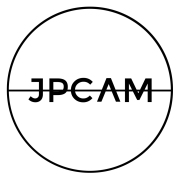▶ DIGC202 GLOBAL NETWORKS
YouTube; a video-sharing platform where anyone and everyone can post and share videos, but there’s a twist — posting original content.

Releasing original content on YouTube can be difficult, so many people have done so many things it’s almost as if there is a video for anything on YouTube. That is why YouTube has decided to add a new copyright rule/claim which is Fair Use — this is to allow content creators to reuse copyright-protected material under certain rules and regulations.
What has been an on-going controversy in the YouTube community is copyright claiming, where one content creator can claim something from another creator’s video as their own (Bailey, 2019). Let me paint you a picture; there is a channel on YouTube called Fine Brothers Entertainment (FBE), they’ve been making videos for almost a decade and have earned a spot on the list for most subscribed YouTube channels. In 2010, the React franchise/series was birthed and the following years after was when a lot of controversy arose — the concept of “reacting to” has already been a part of YouTube even before FBE created the entire series, however in 2014; in an attempt to control other people’s content (Green, 2016), they tried to trademark the word ‘React’ on YouTube.

Now what’s this about the ‘Fair Use’ rule on YouTube then? Well for starters it was implemented in order to improve some aspects of being a YouTube content creator, however, not long after a much larger problem occurred where instead of a big time YouTuber trying to claim copyrights for something controversial — a smaller YouTube channel was trying to claim copyrights infringements against a larger YouTube channel and even filed a lawsuit against them (Eordogh, 2017). This all happened to the YouTube channel h3h3productions in 2017; the h3h3productions YouTube channel was sued by another YouTube channel Matt Hoss Zone — Matt Hosseinzadeh (creator of Matt Hoss Zone) tried to sue h3h3productions because the channel created a 13-minute long video critiquing Hosseinzadeh’s video on a scripted parkour challenge. But wait… they got sued for copyright infringement, how does critiquing = copying?

To put it in short, Hoss couldn’t take comedic criticism and ordered Ethan and Hila Klein (creators of h3h3productions) to take down their video about him in which Hoss truly failed as little did he know, the Kleins were the ones to implement the ideology of Fair Use on YouTube thus using that as a staple argument in the lawsuit which brought the Kleins to a successful win against Hoss (Zelichenko & Levy, 2019).
Now what does that show? If it weren’t for the Fair Use rule on YouTube, a lot of YouTube channels would lose their content let alone their whole channel. Without being able to copyright claim on YouTube means that there won’t be any original content put out and everything will just be a copy of a copy of a copy — the value of the original content will lose face and YouTube wouldn’t have a ‘successful YouTubers list’.
References:
- Bailey, J. (2019, January 10). YouTube’s Copyright Insanity. Retrieved from https://www.plagiarismtoday.com/2019/01/10/youtubes-copyright-insanity/.
- Green, H. (2016, February 3). The Fine Brothers Controversy Explained. Retrieved from https://medium.com/@hankgreen/the-fine-brothers-controversy-explained-long-version-42d3285581d1.
- Sterling, B. (2017, September 23). The Blast Shack. Retrieved from https://medium.com/@bruces/the-blast-shack-f745f5fbeb1c.
- Eordogh, F. (2017, August 28). H3H3 Productions Scores Tentative Win For Fair Use Online. Retrieved from https://www.forbes.com/sites/fruzsinaeordogh/2017/08/25/h3h3-productions-scores-tentative-win-for-fair-use-online/#4b1100b04d56.
- Zelichenko, R., & Levy, M. (2019, April 16). h3h3 Productions Strengthens Fair Use on YouTube. Retrieved from https://www.creatorhandbook.net/h3h3-productions-strengthens-fair-use-on-youtube-41ab690909c9/.
